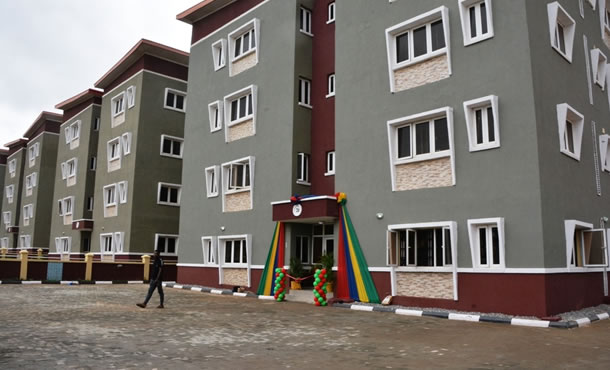
When
renting a commercial residential or commercial property, there are a number of different kinds of commercial leases one could encounter. In some cases occupants may be searching for a residential or commercial property they can construct on and develop improvements that fit their particular needs. If this is the case, then a ground lease might be the best alternative.
A ground lease is a type of lease arrangement in which the occupant leases a piece of land and is permitted to develop that residential or
commercial property throughout the period of the lease. During the lease term, the renter owns any structures, advancements or improvements made on the land. Once the lease ends, the land and any building and construction or improvements on that land end up being the residential or commercial property owner's. Usually, ground leases are long-term, with a lease duration in between 20 to 99 years, said Scott Miller,
Senior Director of Land Services, and Jeff Peden, Executive Managing Director of Land Services at Transwestern. Ground leases are typically net leases, they added, in which the tenant is accountable for paying residential or commercial property taxes, insurance coverage and maintenance.
What's the Difference Between a Subordinated vs Unsubordinated Ground Lease?

There are 2 kinds of ground leases: subordinated and unsubordinated. The distinction in between the two relates to what takes place if the renter is dealing with financial problem during the regard to the lease.
Subordinated Ground Lease
With a subordinated ground lease, the
property owner agrees to be a lower top priority with regards to any other funding gotten on the residential or commercial property. If a tenant secures a loan to build on the land and then defaults on the loan, the lending institution can pursue the residential or commercial property, consisting of the land, as collateral. For example, a renter who signs a subordinated ground lease may get a loan for $400,000 to construct a retail residential or commercial property. However, if that renter runs into financial difficulty and is unable to make loan payments, the lending institution can go after the structure and the land.
"Typically, this is done to help with debt funding to build structures on the residential or commercial property," Miller and Peden said. In many cases with a subordinated ground lease, the property owner may require higher lease payments due to the fact that they're
handling some amount of threat.

Unsubordinated Ground Lease
With an unsubordinated ground lease, the landlord keeps greater concern than the lender. Lenders are unable to foreclose on the land or utilize it as collateral if a renter is unable to make their loan payments. Rather, if the renter defaults on the loan, the lending institution can just pursue their organization possessions. Some lenders might hesitate to give out a mortgage to occupants who have actually signed an unsubordinated ground lease. Because of this included difficulty for the occupants, property managers will typically charge lower lease.
Benefits and drawbacks of Ground Leases for Tenants

Like all leases, ground leases include their benefits and disadvantages, for both tenants and property owners. For occupants, the advantages and disadvantages may vary depending upon what you're trying to find in a business residential or commercial property.
Location: With a ground lease, renters can build a residential or commercial property in a place of their choosing, without being bound to pre-existing buildings in a place that might not be perfect for their particular organization needs.
Lower Taxes: For both federal and state taxes, the rent paid on a ground lease is tax deductible. The occupant is paying less taxes than they would be if they merely purchased the land.
No Down Payment: With a land purchase, the renter would be paying a large
deposit to purchase the land, after which they would still require to build on that land. However, with a ground lease, there is no downpayment, and more cash can go towards building on the land rather.
Reduced Lease Payments: If the tenant were renting both the land and the structure, then lease payments would be much higher. With a ground lease, the renter is making lower month-to-month payments.
Building Customization: When leasing an already existing space, the tenant is not able to customize the structure to fit their particular requirements. However, with a ground lease, tenants are only
leasing the land and can tailor the residential or commercial property as they choose.
Some Higher Costs: Developing a residential or commercial property is expensive, and although tenants have the ability to personalize their structure as they choose, in some cases the monetary costs may surpass those benefits.
Doesn't Retain Ownership After the Lease Expires: After putting money and time into building a residential or commercial property and making improvements, the occupant will need to offer up ownership of the residential or commercial property once the lease ends, if they choose not to renew the lease. At that point, the landowner stands to make money from the enhancements the occupant made.
Responsible for Fees: The tenant has to pay residential or commercial property taxes, insurance and upkeep expenses on the residential or commercial property for the term of the lease.

Benefits and drawbacks of Ground Leases for Landlords
For property owners, a ground lease might be advantageous for a number of reasons, but naturally it
features both benefits and
disadvantages.
Lower Taxes: With a ground lease, property managers do not need to report any capital gains as they would with a land sale. On top of that, the tenant is accountable for residential or commercial property taxes.
Steady Income: Landlords have the advantage of receiving monthly lease on the land, therefore granting them a steady income stream. In addition, many ground leases also consist of an escalation provision, which guarantees a rent increase and eviction rights when it comes to an occupant defaulting on payments.
Retains Ownership of Improvements: After the lease duration ends, the landlord maintains
ownership of any enhancements made on the land and can for that reason sell the residential or commercial property at a revenue.
Lack of Control: In the situation where a landlord doesn't consist of specific stipulations in the lease, they may not have any say in what the renter makes with the land.
Higher Income Tax: Although a property manager will not need to pay
capital gains taxes, the lease they get from the renter counts as earnings, therefore they will have to pay greater income taxes.
In Houston last June, Peden and Miller negotiated a 20-year, 2.64-acre ground lease for a brand-new automotive dealership. The land was leased to Grubbs Automotive, with strategies to transform the existing structures into a brand-new Volvo automotive dealer. In this example, Grubbs Automotive is leasing the land however has the freedom to develop brand-new residential or commercial properties and make enhancements on the land and any existing buildings as they see fit. Once the lease term ends, if they do not renew, then all of those enhancements become the residential or commercial property of the landlord.
What's the Difference Between a Ground Lease vs Leasehold?
A leasehold estate is extremely comparable to a ground lease, because with a leasehold estate, the physical structures are owned by the renter, and the land is owned by another celebration, from which the tenant is renting. The party that is renting the land from the landowner deserves to utilize the land for the period of the lease. When the lease ends, the building and any improvements end up being residential or commercial property of the landowner, comparable to a ground lease. See likewise appurtenance.
However, according to Miller and Peden, "With a ground lease, you essentially have the rights as an owner of the land and the residential or commercial property or buildings that are on it for the duration that has been consented to. With a leasehold, there is an agreement between the owner of the residential or commercial property and the lessee with typically more constraints on the lessee on what can be made with the residential or commercial property." Essentially, leasehold contracts feature more constraints than ground leases however are otherwise fairly comparable.
Is a Ground Lease Right for You?
While a ground lease includes its advantages and drawbacks for both the renter and the property manager, it's crucial to know what you're looking for in a rental contract before selecting a type of lease. Ground leases are beneficial because of their longevity and surefire earnings for landlords. And for renters, ground leases permit you to build a residential or commercial property that fits your custom-made requires. However, there are several lease structures. Before choosing on what fits your needs, make certain to do your due diligence and discover the various kinds of business leases in presence.